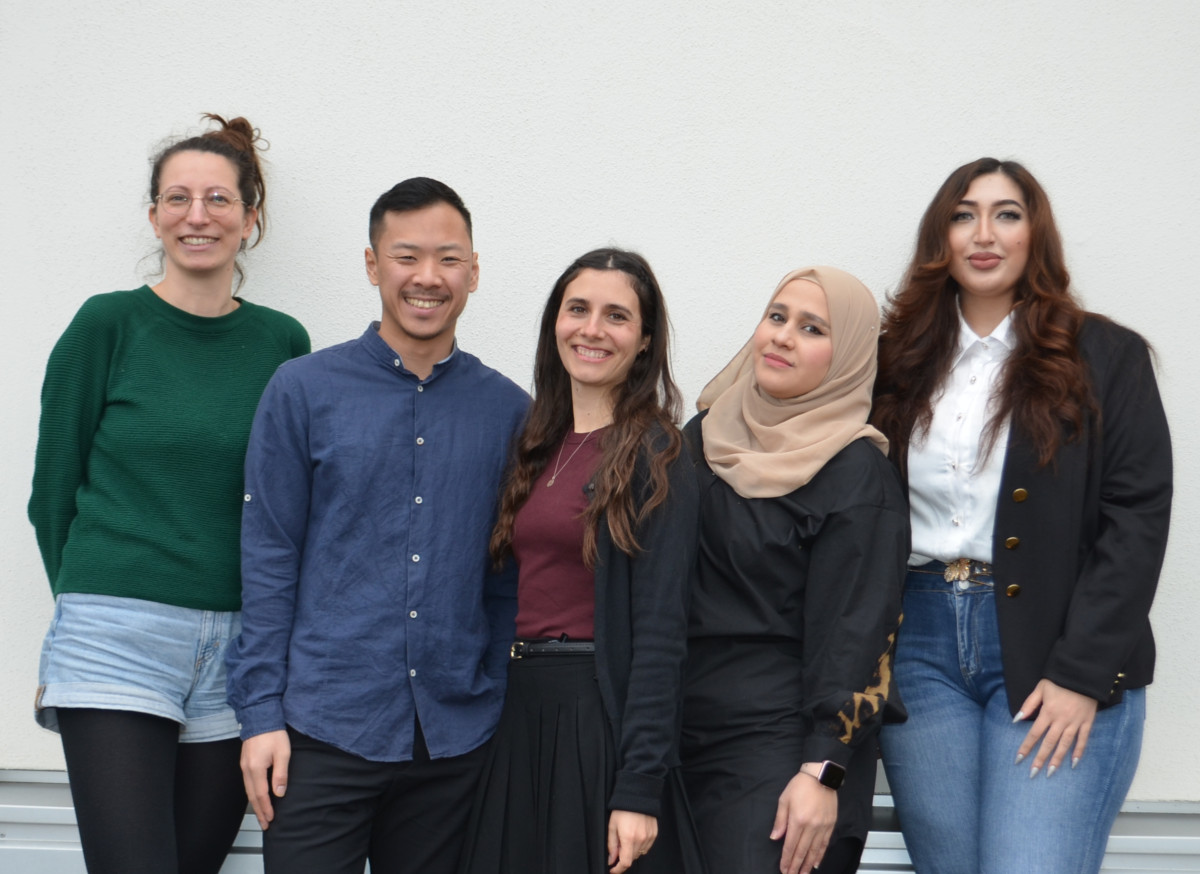ALINA – Berufliche Integration von Frauen mit Flucht- und Migrationserfahrung
"With our language course in online format, we were also able to reach women with childcare responsibilities."
Erfurt
Starting a career with language for migrant women at ALINA
The LAT project "ALINA - Berufliche Integration von Frauen mit Flucht- und Migrationserfahrung" has been running for over four years now at the Akademie für Interkulturelle Bildung & Soziales gGmbH in Erfurt. As the name suggests, the project is aimed exclusively at migrant and refugee women. The primary aim of the project is to develop sustainable career prospects for those seeking advice and participants. This is achieved through personal counselling and placement, but also through various courses, such as computer courses, language cafés and online language courses.
Almost 15 women took part in the last online language course at A1-A2 level. It took place four times a week, always from 12.30 pm to 2.30 pm. "The beginning is always a bit bumpy because the log-in process is always a bit of a hurdle at first. There's also a lot of phone calls," says ALINA project employee Dagmar Blöhbaum. Creative solutions were also found here, for example the project recorded short audio messages with explanations - including in Arabic - which were passed on to the women. At the end of the course, the participants received a certificate of attendance. The realisation of the language course in online format offered the great advantage that not only women from Erfurt, but women from all over Thuringia could participate and "as a low-threshold offer, women with childcare responsibilities" could also be reached, explains Dagmar Blöhbaum. ALINA employee Maja Nadoewi adds: "Another target group are women who come to join their families. They often don't have the financial means - even if there are courses - to pay for them, so the best alternative for them is to take a free course."
However, there are also hurdles to participating in the course. These are mainly the technical requirements. Most of the participants don't have a laptop or tablet, so they have to take part with a mobile phone, which is not ideal. It is also good for mums with small children that they can take part in the course online. However, this can also lead to distractions from the course.
The last course was completed by "the majority of women (...) with a certificate. We then meet here for the certificate presentation with a cosy get-together, photo and flowers," says Dagmar Blöhbaum.
A preparatory course for the B1 exam was also offered afterwards. This was divided into online and face-to-face sessions. There were different experiences with the participants. "There were women who took part in both online and face-to-face sessions and some only in one. Depending on how it suited the participants. It was really different. There were women who said it was no use to me online, I can't keep up with it, and others who said it only works for me online," reports Maja Nadoewi.
This shows how the project tries to take the realities of the target group's lives into account with its programmes.
If the women wish, individual counselling sessions are also held in parallel to the courses on how they can continue their careers after the courses and what steps and support they need to do so. Some of the women develop an interest in vocational counselling after taking part in the German or computer courses and begin to reflect on their professional and social prospects in Germany. The courses and other accompanying programmes in the LAT project ALINA are therefore not only an important step towards learning the German language and acquiring basic technical skills. For the participants, they are often the first step towards more complex counselling processes and thus towards professional and social participation.

Mehr über das Projekt erfahren Weitere Praxisbeispiele ansehen